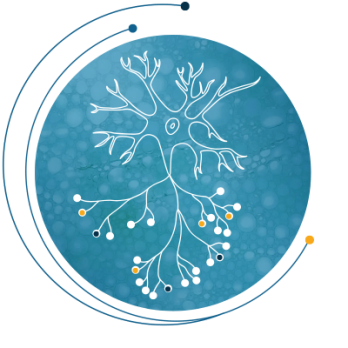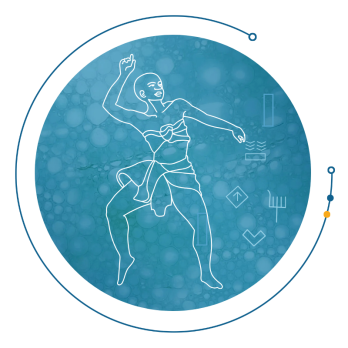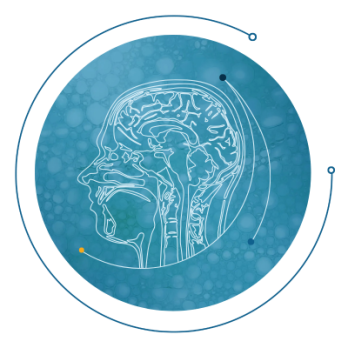The South Africa we have today is shaped by a complicated history of injustice. A unique history that drives both former and current issues. Work that seeks to uplift individuals and communities, that is aware of existing inequalities and unfairness, is critical as we strive to transition into a more equitable and just world.
The work of the AI Initiative is to make a valuable and real difference, to innovate, accelerate and centralize research efforts that seek to uplift our Africa by leveraging artificial intelligence, driven by a vision of a holistically just future
Foundational AI Safety, Ethics & Governance Health & Wellbeing Climate & the Environment Poverty & Inequality
Foundational AI

Foundational AI is the building block of all AI technology. It includes both developing the theoretical underpinnings of AI as well as the development of novel algorithms that are carefully benchmarked against state of the art methods. These are often developed in simulated environments that can then be carefully taken to the real world.
While the vision of the institute is to leverage AI for a better world, without a world-class foundational expertise in AI theory and methodology, it is only possible to use what others have developed in other parts of the world in our applied AI areas. UCT has world-class researchers in a number of foundational AI areas who interface with applied scientists in the areas of health and wellbeing, climate and the environment, poverty and inequality and AI safety.
The core areas of foundational AI that are championed in the initiative are:
-
Natural Language Processing UCT Natural Language Processing Group (NLP)
-
Reinforcement Learning Research – ShockLab
-
Knowledge Representation and Reasoning Knowledge Representation and Reasoning | CAIR
-
AI systems Adaptive and Cognitive Systems Lab | CAIR
-
Computer Vision Dr Patrick Marais | Computer Science
-
AI and robotics Dr Paul Amayo | Electrical Engineering
-
Evolutionary algorithms Nitschke Lab
-
Machine Learning Prof Bruce Bassett | Mathematics
Safety, Ethics and Governance

The University is playing a leading role in exploring both the ethical implications of AI and how AI can contribute to shaping governance systems, with cross-faculty collaborations driving this important work. Champions of this work include the 4IR and Ethics of Care in Africa programme at the Humanities in Africa Institute (HUMA); research at the EthicsLab in the Faculty of Health Sciences; and the Global Risk Governance Programme in the Faculty of Law.
What makes this research distinctive is its grounding in Africa’s socio-economic and technological contexts, its strong commitment to social justice, and its direct engagement with affected communities and policymakers. Researchers are not only developing frameworks to govern AI ethically and responsibly, but also reimagining what inclusive, context-sensitive, and rights-based AI governance could look like—ensuring that technological innovation contributes to a just and equitable future.
The University is already at the forefront of work on the ethics and governance of artificial intelligence (AI) and of the use of AI in the development of governance structures, with active collaborative initiatives and interdisciplinary programmes across many faculties.
At the Humanities in Africa (HUMA) Institute in the Faculty of Humanities, scholars have for several years been working on the “4IR and Ethics of Care in Africa” programme, which entailed critical scholarship interrogating how AI may shape future hospitals in Africa.
In the EthicsLab of the Faculty of Health Sciences, scholars have asked critical questions such as what representations of Africa are dominant in AI discourse and why that is of ethical significance; how African relational ethics can guide the development of AI technologies by asking whether technologies support or erode the relationships that make us persons; opportunities for integrating alternative values in data governance to promote the public interest; as well as critically considering whether and how ethical values such as those relating to social justice, inclusion and equity, can be demanded in the development of AI technologies.
In the Faculty of Law, scholars are playing a leading role in developing contextually grounded, adaptive governance models for AI. This includes exploring polycentric and ethics-based approaches that emphasise fairness, transparency, and accountability. In 2024, the Faculty hosted the landmark International Conference on AI and the Law, which brought together international experts to debate how AI is transforming legal practice, labour relations, and international legal frameworks.
The Global Risk Governance Programme in the Faculty of Law is pioneering research on the intersection of AI and complex governance challenges. Current projects focus on how AI is used by and against organised criminal networks and illegal markets, the deployment of AI in conservation and biodiversity protection, and the governance potential of AI in analysing international legal frameworks such as the Antarctic Treaty System. Through the lens of AI harmscapes, this work examines how artificial intelligence technologies reshape landscapes of harm and benefit, particularly in contexts marked by contested legality, fragile ecosystems, and geopolitical complexity. The research offers novel insights into how AI systems interact with environmental, regulatory, and criminal governance regimes—and how these systems might be governed more equitably and inclusively.
Current research also explores sector-specific regulatory frameworks and inclusive governance models that ensure AI systems are developed and deployed in ways that avoid reproducing structural inequalities and prioritise rights-based, locally responsive solutions.
What makes this work distinctive is its grounding in Africa’s socio-economic and technological realities, its deep commitment to social justice, and its direct engagement with affected communities and policymakers. Across the University, researchers are working not only to govern AI—but to reimagine what ethical and inclusive AI governance could look like.
Importantly, this research is uniquely positioned due to a comprehensive understanding of Africa's socio-economic and technological landscape, combined with expertise in legal and regulatory analysis. A commitment to addressing inequality and advocating for the rights of marginalised communities is central, ensuring that the work prioritises social justice.
By bringing together scholars with strong backgrounds in AI, law, ethics, social science and policy, the research is made interdisciplinary and grounded in the realities of the continent. Established networks with key stakeholders, including policymakers, industry leaders, and civil society organisations, enable direct engagement with those shaping the future of AI in Africa.
This holistic approach allows for the development of regulatory models that not only foster innovation but also promote inclusivity, prevent the exacerbation of existing inequalities, and empower vulnerable communities, contributing to a more equitable and just society across Africa
Health and Wellbeing

Across Africa, researchers are beginning to explore how emerging AI technologies could reshape the future of healthcare and medical science. Among them, teams at the University of Cape Town are investigating applications ranging from early disease detection and drug development to patient-specific treatment strategies that reflect regional health dynamics.
Their work includes studying genetic markers that affect how individuals respond to medication, as well as investigating causes of rare brain disorders. By combining advanced imaging tools with expertise across multiple disciplines, these efforts are paving the way for data-led insights into both infectious and chronic conditions.
Artificial Intelligence (AI) offers a huge opportunity to revolutionise medical research and healthcare across the continent, expanding the integration of AI into an already world-leading research ecosystem that produces groundbreaking discoveries.
AI holds enormous potential within healthcare, and researchers within the University of Cape Town (UCT) community are leveraging AI for impact in diagnostic tools relevant to the African context, drug discovery, creating region- specific apps and advice for healthcare workers using Large Language Models and ontologies, and designing medical devices which leverage with the help of AI. The AI Institute fosters interdisciplinary collaboration and innovation across fields and partnerships with other institutions, government agencies, and industries, both locally and internationally.
AI-driven initiatives at UCT, such as those at the Drug Discovery and Development Centre (H3D), are already applying machine learning to optimise drug use in regional populations by identifying genetic variants that affect drug metabolism.
Similarly, AI is helping researchers at the Neuroscience Institute analyse whole genome sequences of African patients with rare neurological diseases, such as amyotrophic lateral sclerosis, enabling the identification of pathogenic variants within diverse genomic data.
AI is also already transforming imaging research. UCT’s advanced imaging platforms, such as the African Microscopy Initiative and the Cape Universities Body Imaging Centre, offer researchers advanced imaging capabilities from the cellular and tissue level using light microscopy, to whole-body imaging with cutting-edge Magnetic Resonance Imaging and Positron Emission Tomography scanners. These data-acquisition tools enable AI-driven analysis of vast imaging datasets, improving diagnostic accuracy and treatment outcomes (for instance in brain-age predictions for patients with HIV). AI can facilitate early interventions and personalised therapies for both communicable and non-communicable diseases.
More AI-driven initiatives in Health & Wellbeing:
Climate and the Environment

In a world where resource consumption exceeds the planet’s sustainable limits, and the environmental equilibrium has been so severely disrupted, research into climate change and sustainable development has become more critical than ever. At the University, climate-focused researchers are beginning to leverage AI to enhance their work in these areas. Drawing on expertise from initiatives like the African Climate and Development Initiative (ACDI) and a range of specialised centres, they are applying AI to deepen understanding and accelerate responses to climate-related challenges.
Applications of AI in this research area are extensive, ranging from pattern recognition and data synthesis for climate and weather modelling to predicting the impacts of climate change, enhancing energy efficiency, managing (natural) resources, biodiversity conservation, and enabling early warning systems for disasters. Collectively, these capabilities inform evidence-based policy and decision-making aimed at promoting impactful mitigation and adaptation strategies and improving lives across the African continent.
The University of Cape Town (UCT) climate change research community, convened by the African Climate and Development Initiative (ACDI) and including areas of specialisation such as the Climate Systems Analysis Group (CSAG) and the Environmental Policy Research Unit (EPRU) and the Centre for Statistics in Ecology, Environment and Conservation (SEEC) leverages artificial intelligence (AI) to accelerate its research on climate change and sustainable development.
By incorporating AI-driven tools and methodologies, the ACDI can enhance data analysis, model complex systems, and create predictive models that can inform better decision-making in climate resilience, adaptation, and mitigation efforts. Climate models and satellite imagery produce vast amounts of information that are critical for understanding changes in weather patterns, sea levels, and ecological shifts. Machine LearningAI techniques such as machine learning (ML) can be used to analyse these datasets far more efficiently than traditional methods, identifying patterns and trends that are difficult for humans to detect. For example, deep learning algorithms can be used to predict extreme weather events, allowing policymakers and communities to prepare for disasters more effectively. Similarly, AI can optimise resource management systems, such as predicting water shortages or crop failures, helping to safeguard food and water security.
In addition to improving data analytics, AI can also enhance climate change mitigation efforts by optimising energy use and accelerating the transition to low-carbon technologies. For instance, AI-driven tools can improve energy efficiency in urban planning by optimising heating, cooling, and transportation systems, all of which are critical for building climate-resilient cities. AI can also be applied to renewable energy systems, such as predicting the performance of solar panels or wind turbines under varying conditions, ensuring a more reliable supply of clean energy. This will help ACDI's work on promoting low-carbon transitions across Africa, making mitigation strategies more effective and scalable.
Finally, AI can contribute to decision-making processes by simulating complex socio-ecological systems and enabling scenario-based planning. Tools like reinforcement learning can be used to model adaptive strategies for different climate futures, helping stakeholders navigate uncertainty and develop more robust policies. These AI-driven insights can inform development strategies that are tailored to the unique challenges African countries face due to climate change, such as urbanisation, biodiversity loss, and water scarcity. By integrating AI into its research framework, ACDI can not only enhance the accuracy and efficiency of its studies but also provide actionable insights that drive impactful change across the continent.
Further AI-driven research supporting the climate and environment:
Poverty and Inequality

AI has the potential to significantly enhance research on poverty and inequality by providing advanced analytical tools to process and interpret complex datasets. Researchers can leverage machine learning to identify patterns and correlations in socio-economic data, helping to reveal the underlying drivers of inequality in South Africa. Moreover, AI can facilitate community engagement and participatory research methodologies, allowing marginalised voices to contribute to the discourse on poverty and inequality. As South Africa continues to confront high levels of inequality and poverty, UCT's initiatives play a vital role in shaping public policy and advocating for equitable social change.
Poverty and inequality research at the University of Cape Town (UCT) is dynamic and interdisciplinary, reflecting the institution's commitment to tackling urgent social issues in South Africa and beyond. Research units, such as the South African Labour and Development Research Unit (SALDRU) and the Institute for Humanities in Africa (HUMA), are at the forefront of exploring economic disparity, labour dynamics, and social justice. Scholars at these centres conduct research that combines qualitative and quantitative methods, with a strong focus on the lived experiences of marginalised communities. Collaboration with local stakeholders and policymakers ensures the research is practical, relevant, and impactful.
Poverty and inequality research at the University of Cape Town (UCT) is dynamic and interdisciplinary, reflecting the institution's commitment to tackling urgent social issues in South Africa and beyond. Key research units, such as the South African Labour and Development Research Unit (SALDRU) and the Institute for Humanities in Africa (HUMA), are at the forefront of exploring economic disparity, labour dynamics, and social justice.
Scholars within these centres engage in diverse studies that integrate both qualitative and quantitative approaches, often emphasising the lived experiences of marginalised communities. Collaborations with local stakeholders and policymakers further enhance the relevance of their findings, ensuring that research informs practical solutions.
AI has the potential to significantly enhance research on poverty and inequality by providing advanced analytical tools to process and interpret complex datasets. Researchers can leverage machine learning to identify patterns and correlations in socio-economic data, helping to reveal the underlying drivers of inequality in South Africa. Moreover, AI can facilitate community engagement and participatory research methodologies, allowing marginalised voices to contribute to the discourse on poverty and inequality.
As South Africa continues to confront high levels of inequality and poverty, UCT's initiatives play a vital role in shaping public policy and advocating for equitable social change.
Through natural language processing, researchers can analyse social media data, surveys, and community feedback to gauge public sentiment and highlight the challenges faced by underprivileged groups. This not only enriches the data landscape but also empowers communities by incorporating their perspectives into academic research. Ultimately, by harnessing AI, the University of Cape Town can drive innovative solutions that address the systemic issues of poverty and inequality, fostering a more equitable society.
